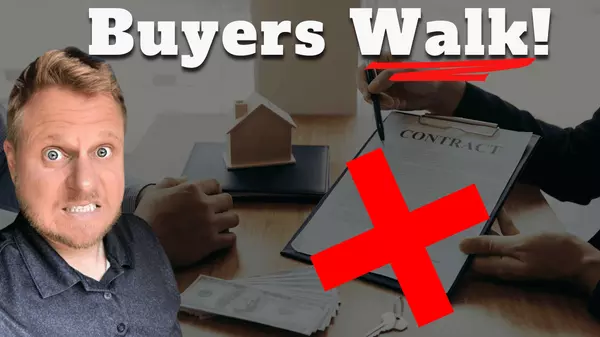Buying A Home From A Foreclosure Auction! In Texas!
Exploring the County Clerk's Office Foreclosure Auction: A Behind-the-Scenes Look
The foreclosure auction process can be an overwhelming but rewarding experience for both seasoned investors and newcomers. If you've ever wondered how the magic happens behind the scenes, this will give you a detailed look into one such event—the San Antonio foreclosure auction. If you're curious about how foreclosures are handled, how to evaluate a deal, and how to navigate the auction yard, read on and watch the video to leave comments!
The Basics of Foreclosure Auctions
Foreclosure auctions happen once properties default on their mortgages and are reclaimed by the lender. In Texas, foreclosure sales must be posted as legal notices 21 days prior to the sale date. These listings are available both online and at the courthouse, giving buyers the opportunity to negotiate deals with homeowners before the auction takes place.
One key point: showing up at an auction unprepared could mean missing out on some great deals. It’s recommended that new buyers attend multiple auctions beforehand to familiarize themselves with the process, as each auction can feature multiple bidding sessions—sometimes happening simultaneously. A lawyer might pop up and start a small-scale auction in the corner, and if you're not paying attention, you could miss out on a prime opportunity.
The Art of Negotiation Before the Auction
Savvy investors often don't wait until the auction to make their move. For example, real estate investors like Logan have already negotiated multiple deals before auction day by contacting homeowners in distress. These negotiations allow investors to cut deals, such as allowing the homeowner to stay in the property for a month or two after the sale and putting some money in their pockets upfront.
Once the auction happens, however, things change. The highest bidder becomes the new property owner, and they can immediately start the eviction process. This is why many homeowners who fail to negotiate beforehand face an uncertain future once their homes are sold.
Evaluating Properties at Auction
When attending a foreclosure auction, buyers rely on a foreclosure catalog to review the available properties. This catalog includes essential details such as the property's address, the type of mortgage being foreclosed, the original loan amount, and the current estimated value.
An important lesson to remember: the opening bid is often lower than the outstanding mortgage to spark interest in the property. However, if no one bids above the "credit bid" (the amount owed to the lender), the lender becomes the new owner of the property. This dynamic creates opportunities for investors to snag a great deal—if they know how to play the game.
For example, in one case mentioned during the auction, a property that originated with a $45,000 loan was being sold while Zillow estimated the home’s value at $278,000. While this may sound like a great deal on the surface, it’s essential to do your homework on the property's condition and potential equity before bidding.
Understanding Equity and Excess Proceeds
One of the most significant benefits of buying at a foreclosure auction is the potential for equity. If a property sells for more than the outstanding loan amount, the borrower is entitled to the excess proceeds. However, many borrowers are unaware of this and fail to claim the funds.
For instance, if a property sells for $240,000, but the loan balance is only $137,000, the borrower is entitled to the $103,000 difference. Investors, therefore, need to educate themselves on this process to ensure they maximize their returns while being aware of their responsibilities to the former homeowners.
Winning at the Auction
At the end of the day, it's all about being strategic. One investor won a property valued at $410,000, but they were able to purchase it for $290,000. The property had no major repairs needed, making it a relatively low-risk investment.
However, not every auction purchase is a slam dunk. Investors need to be cautious and factor in potential issues like mold, termites, or foundation problems. As Logan points out, even with potential issues, having enough equity in the property provides a cushion to mitigate risks.
The Takeaway: Foreclosure Auctions Aren't for the Faint of Heart
Foreclosure auctions can be a great way to acquire properties at below-market prices, but they require preparation, due diligence, and the willingness to take calculated risks. From researching properties beforehand to negotiating with distressed homeowners and evaluating the equity potential, every step in the process presents its own set of challenges and rewards.
Are you ready to try your hand at a foreclosure auction? If you're new to this space or want to learn more, Let’s discuss!
Categories
Recent Posts











